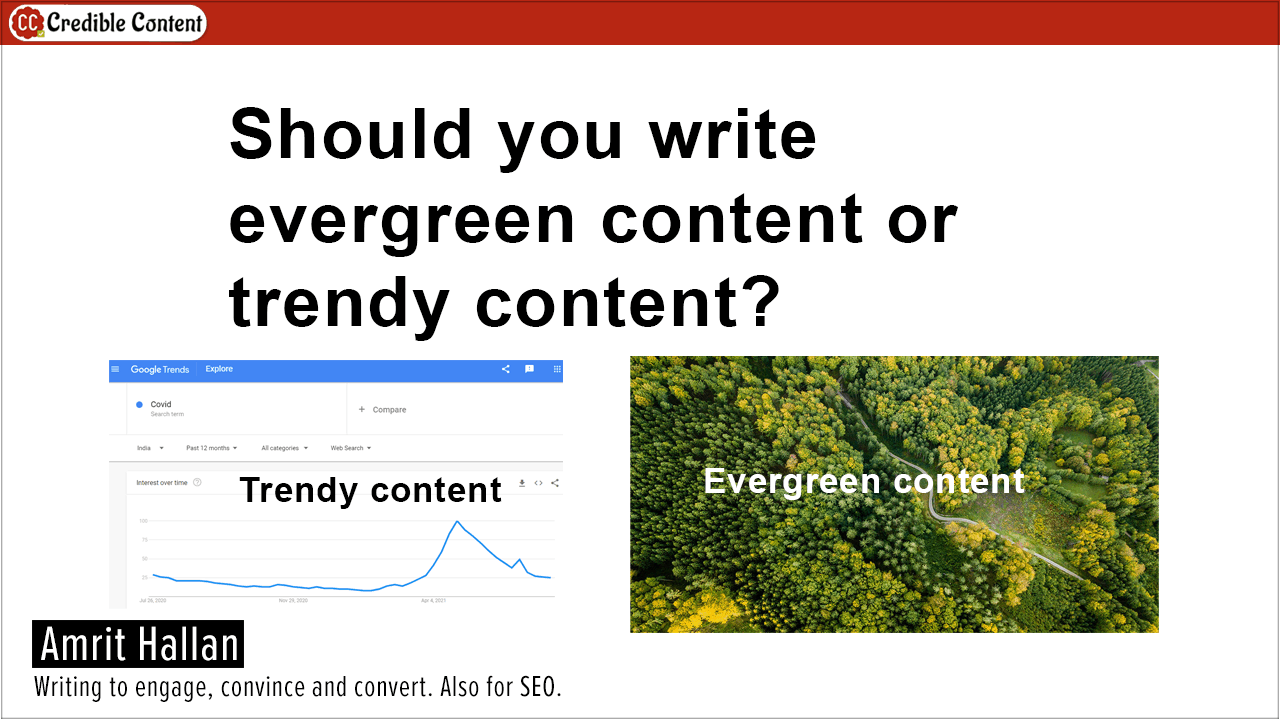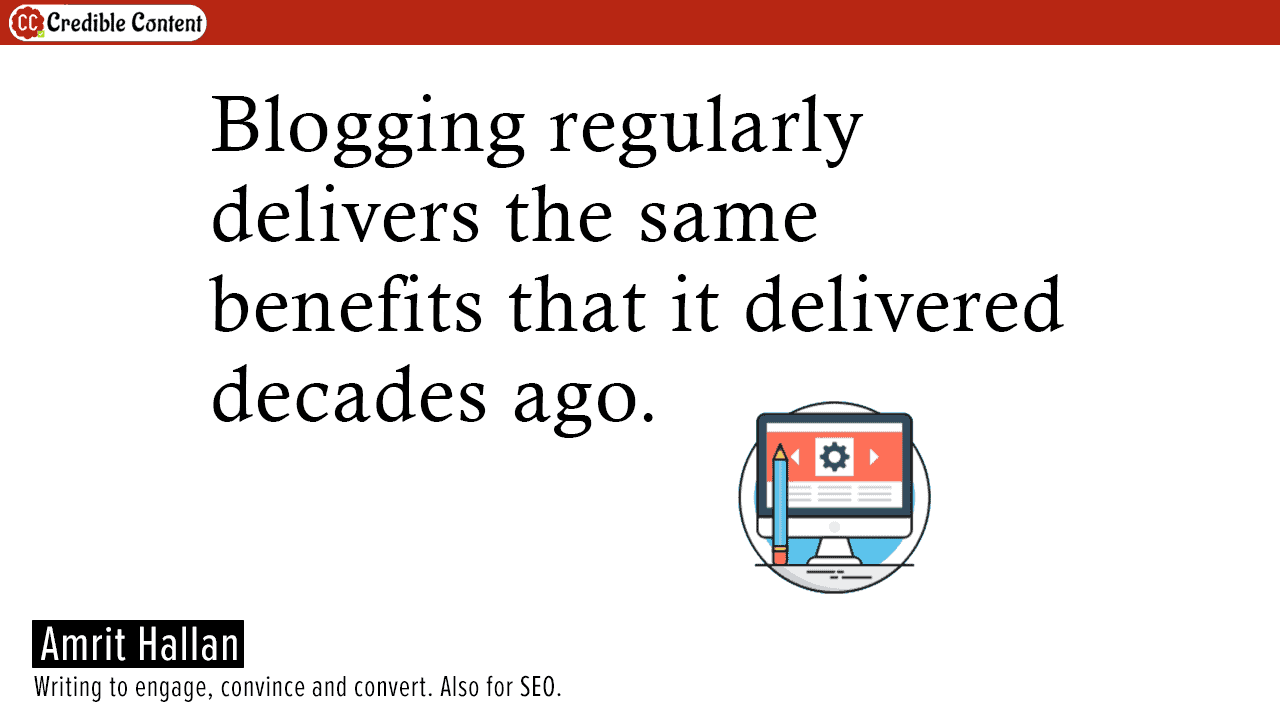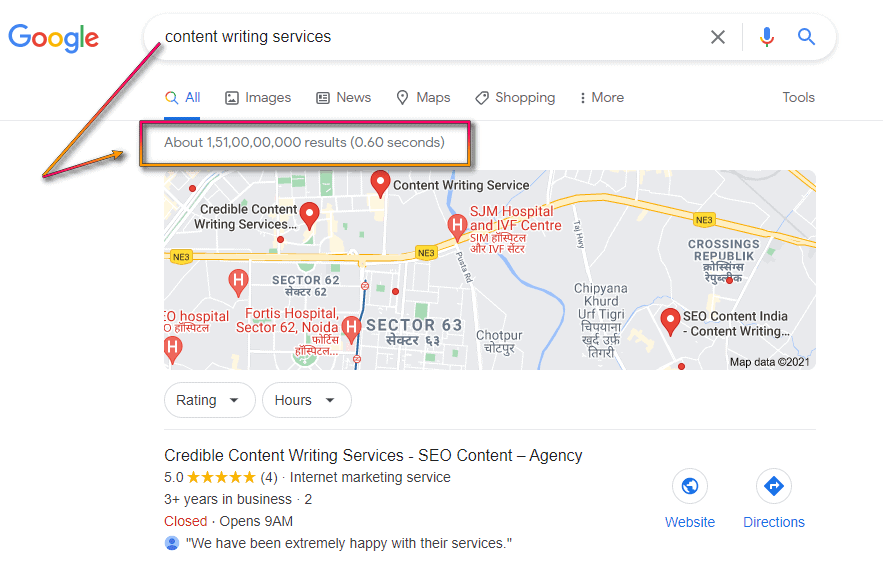I was just reading this Smashing Magazine article on how to attract clients to your agency and thought of giving it a content writing twist.
In the beginning the writer says that many web design agencies (he mostly addresses web design agencies but the advice that he gives can be used by any agency) depend on word-of-mouth recommendations, which he says, is not a long-term strategy. I partly agree.
I have been writing professional content for a little over 15 years now, and I have accumulated a decent list of satisfied clients who don’t hesitate from recommending my content writing and copywriting services to their colleagues, business partners, or relatives. This is a steady stream of work that I don’t mind. It doesn’t mean that I put all my eggs in a single basket of word-of-mouth recommendations, but a big chunk of my money comes from such recommendations these days.
One thing I agree with, though, if you want to work with a diverse range of clients, then too many word-of-mouth recommendations can turn your work stale. For example, if you get a recommendation from an Internet marketing coach, most of the clients will want you to write according to the teachings of the marketing coach even if you don’t completely agree with those teachings.
Similarly, if a real estate client recommends you to his other real-estate friends, they are going to expect you to write just the way you have written for that particular client.
Well, this is what the Smashing Magazine author says, and though, to an extent I agree with this chain of thought, I don’t agree completely.
Anyway, I started writing this blog post to explore the ideas of using content writing to attract new and more clients to your agency.
The difference between an agency and a normal client in terms of content writing
When an agency contacts me for writing content it is for two reasons:
- It needs content for its own promotional campaigns to attract more clients.
- It needs content for the clients.
An agency works with “accounts”. It can be a web design agency, an interior design agency, and architects’ firm, or an employment agency.
The term is often mixed. If you look up the definition of agency, it works for the benefit of its “account” and on behalf of the “account”, interacts with other parties. For example, an employment agency interacts with prospective employees on behalf of an employer.
Anyway, that’s beside the point.
Every agency needs to attract clients. If you are a web design agency, you’re looking for clients who are interested in getting their websites developed and designed. If you are an app development agency, you are interested in companies and people who want mobile apps developed. And so on.
A good thing about content writing is that you can attract different categories of clients to your agency by publishing targeted content.
I can call myself a content writing and copywriting agency.
Although a big chunk of my clients come from the IT and the Internet marketing industry, I also get lots of work from other categories such as interior design, real estate, real estate financing, accounting and bookkeeping, and the hotel industry. For the past couple of months, I have been writing lots of content for a lab that provides various tests such as lipid profile, thyroid, diabetes, cholesterol, blood count, and so on.
Hence, you can say that I have cast a wide net. Conventionally, this isn’t recommended. You would say that if I am comfortable writing about information technology, then I should just focus on information technology and develop my expertise further so that I can charge more for my specialty.
That’s a different issue.
Let’s explore some ways you can attract clients for your agency through content writing.
Tell your success stories through regular content writing
Every client loves reading your success stories, especially when that client is about to hire you or needs to make a decision. Success stories are reassuring. They tell your clients how you solve problems for other people you work with. Hence, if you can solve their problems, you can also solve the problems of this client.
Why stories? Why not simply explain?
Stories are conversational. They are relatable. They’re not hypothetical scenarios. They talk about real-world problems faced by real-world people and real-world solutions provided by real-world people.
A story has a narrative. It has a context. It has a logical sequence. It binds people.
If I simply tell you that my content writing services can help you improve your search engine rankings, you may or may not believe.
But if I tell you about this Prakash Chaturvedi who runs a data analytics company and who’s search engine rankings were not improving no matter how much content he published on his company’s blog, and then how I helped him recognize the problem with his current content strategy and rewrote his existing content and brought many blog posts to Google’s first page, you are immediately going to get interested.
Even if you don’t run a data analytics company yourself, you will be able to relate to his dilemma.
This is just one instance. I can write similar stories for real estate business, hotel business, catering business, blockchain development company, and so on.
I can write about different success stories.
The stories will reassure my clients and they will be more eager to work with me.
Improve your search engine rankings with relevant content writing
As an agency, if you depend on Google and other search engines to get new clients, you definitely need to pay close attention to your search engine rankings. How do you plan to improve them?
Relevant and quality content writing can help you.
To improve your search engine rankings, you need to publish content regularly. You need to follow a content publishing schedule. Once you have created a schedule or a content publishing calendar, make sure that you stick to it.
Although covering your primary and longtail keywords shouldn’t be the sole focus of your content writing, keywords are important.
Make a long list of them. If possible, use various research tools and research methodologies to find the keywords and search queries used by your clients when they are trying to find your agency or the work that your agency does.
Then start regularly publishing content on those topics.
Focus on quality. Quality must always come first. Don’t cover your keywords at the cost of quality and relevance. Publish content that satisfies search intent – provide exactly what people are looking for.
Cover all the bases. As I have written above, you can write success stories. You can publish blog posts that explain various aspects of the work that you do.
I constantly publish blog posts on content writing and copywriting – what I’m learning, what I’m observing, and what I think can help my clients. I share everything. This tells my clients that I know what I’m doing.
Build your brand authority
Being an authority means people trust you. They believe that you have enough knowledge to deliver a quality service.
How can you build your brand authority as an agency?
There are many ways.
- Satisfy the knowledge thirst: People are looking for answers. They want to learn. They want to enrich their minds. They want to understand. When you provide information that satisfies people, you become an authority.
- Publish unique research and new findings: Agencies that come up with new research and new findings are always considered authoritative in their field. For example, if I come up with a new finding that 70% agencies can improve their authority with strategic content writing, and I have the figures and sources to prove it, you may consider me as an authority figure.
- Bring the latest to your audience: Being an authority, you’re always at the forefront of the cutting-edge. What’s the latest happening in the field of content writing and copywriting? What achievements have been made? What new web design trends are emerging? As an authority, you expect me to know the latest.
- Take a stand: You can take a stand only when you are in command over your field. To be able to take a stand, you need to know. Hence, when you take a stand, people automatically assume that you know what you’re doing. It may mean antagonizing some people, but that’s the risk that you need to take.
- Remain visible: You need to write and publish content regularly. No matter how authoritative your writing is, if you don’t regularly remain in front of your audience, you cease to matter.
Build your mailing list
I know, this has got nothing to do with content writing, but since you need to write content for your newsletter, somehow this is relevant. As an agency, building a mailing list is a must.
A mailing list is a list of people who share their email ID with you so that you can keep in touch with them through a newsletter or routine email updates.
Many clients approach me to write email marketing campaigns for them while they have spent no effort on building relationships with their mailing list. This is a wrong approach.
A mailing list should be used for building relationships rather than constantly trying to sell stuff.
Remember that as an agency you’re not selling items. You are selling a presence. When you send messages to your mailing list, you just want to keep them aware of the fact that you exist, and you are delivering your services non-stop.
Remain active on social media
Social media may seem trite, especially the platforms where people are posting silly images and videos, they have a reach. They have a visibility.
Even if your prospective client isn’t looking for agencies like yours on Instagram, there is a great possibility that he or she has an account over there and goes through the timeline once or twice a day.
When he or she comes across your update it’s a pleasant surprise, especially when you add value to the timeline.
This is how you increase your agency’s brand visibility. Remain visible. Be clear about your messaging. Be consistent with your messaging.
Again, this was a small blog post that I began to write after reading that Smashing Magazine article, but then I felt like covering all the points that came to my mind.
Content writing can be a potent tool in your toolbox of digital marketing if you want to attract clients as an agency. It helps you tell your story. It helps you share your expertise. It helps you add value to the lives of your current and prospective clients. It keeps your agency’s name in front of them with a positive association.










